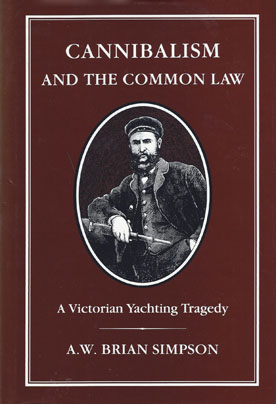
In 1884 Tom Dudley, an intensely respectable Anglican and teetotaller, was employed to sail the fifty-foot yacht Mignonette from England to Sydney, Australia. He set sail from Southampton on 19 May with a crew of three: Edwin Stephens (mate), Ned Brooks (able seaman) and Richard Parker (ordinary seaman and “boy”).
The yacht foundered in the South Atlantic on 5 July, the crew escaping in a small dinghy supplied with two tins of turnips, but no water. On 25 July Dudley, with the assent of Stephens, killed Richard Parker, who was the weakest: the sailors then ate him. Rescued four days later and landed at Falmouth, Dudley and Stephens made no secret of how they had survived.
Captain and mate were convicted of murder in a celebrated and manipulated leading case. Sentenced to death but reprieved, they served a mere six months in prison. Brian Simpson presents these events in their context, now utterly remote: that of the Victorian seaman in the days of sail, when murder and cannibalism after shipwreck ranked as an accepted custom of the sea.
Cannibalism and the Common Law tells the story of a dramatic collision between two worlds: that of Victorian judges and their parlour morality, and that of seamen confronted by brutal reality. In this tour deforce Brian Simpson proves that legal history can be presented in human terms; and that it can make compulsive reading.
Cannibalism and the Common Law is an enthralling classic of legal history. The killing and eating of one of the crew, Richard Parker, led to the leading case in the defence of necessity, R. v. Dudley and Stephens. It resulted in their being convicted and sentenced to death, a sentence subsequently commuted.
Brian Simpson sets the legal proceedings in their broadest historical context, providing a detailed account of the events and characters involved and of life at sea in the time of sail. This brilliant and fascinating book, is a marvelous example of careful historical detection, and first-class legal history, written by a master.